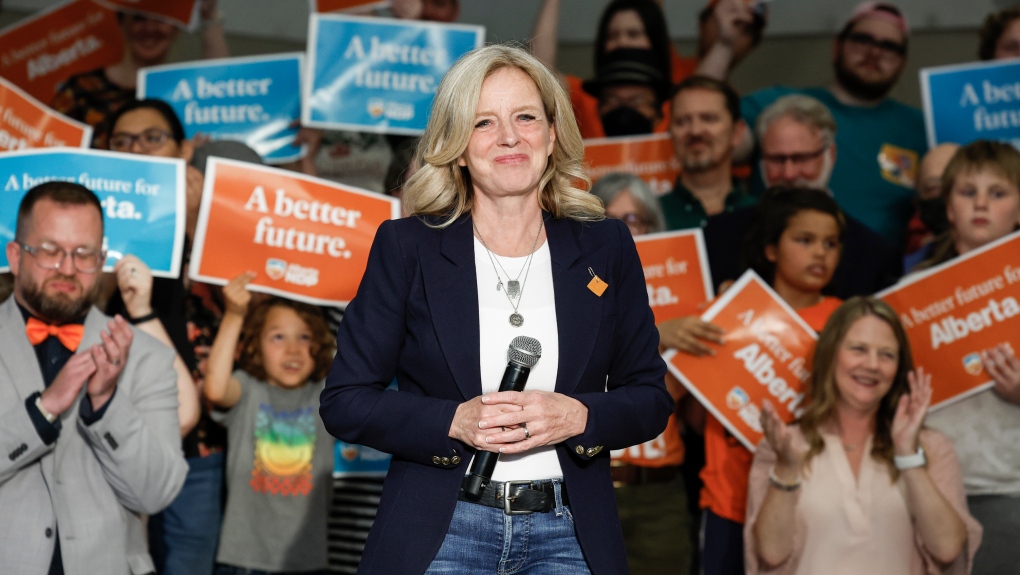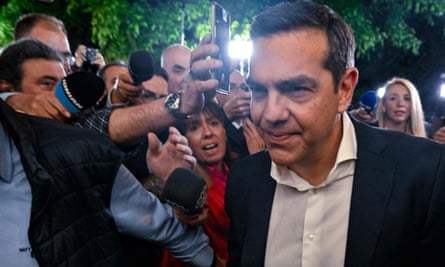UCP Leader Danielle Smith says time to 'depoliticize' LGBTQ issues during debate
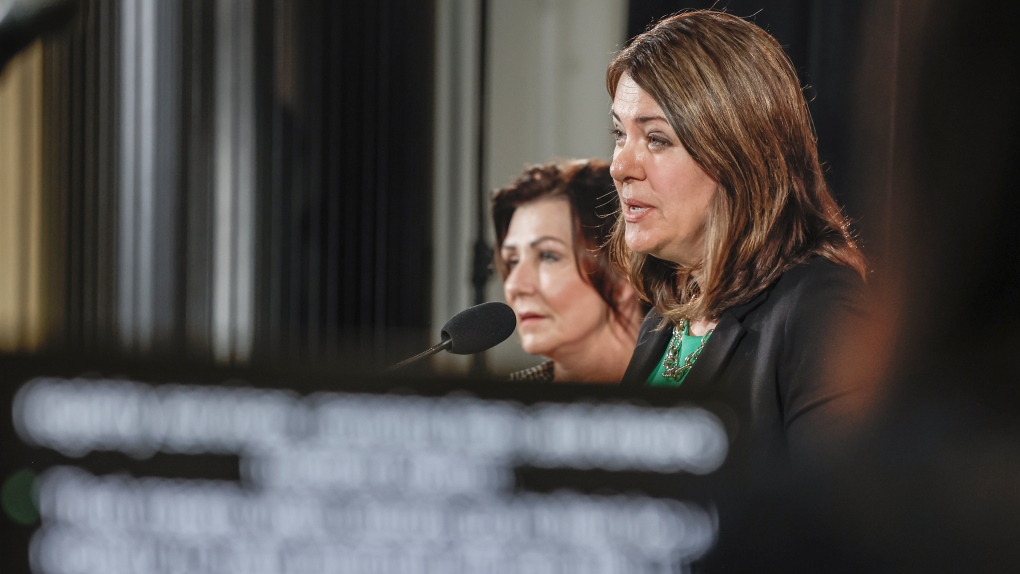
United Conservative Party Leader Danielle Smith makes an election campaign announcement in Calgary, Alta., Thursday, May 11, 2023. Albertans go to the polls on May 29
. THE CANADIAN PRESS/Jeff McIntosh
Colette Derworiz
The Canadian Press
Published May 18, 2023
MEDICINE HAT, ALTA. -
United Conservative Leader Danielle Smith said it's time to depoliticize LGBTQ rights on the same day her party came under fire for a candidate's comments on transgender children.
She faced off Wednesday night in a candidates debate against the NDP's Gwendoline Dirk and Alberta Party Leader Barry Morishita, both of whom are running against her in the southeastern constituency of Brooks-Medicine Hat. Follow full election coverage on Alberta Votes 2023
It was her second debate as a candidate this week in the lead up to Thursday night's leadership debate in Edmonto
Earlier in the day, the UCP candidate for Lacombe-Ponoka apologized for comparing transgender children in schools to having feces in food.
“If elected as an MLA, I will seek advice and counsel on how to best communicate my views and discuss these issues meaningfully moving forward,” Jennifer Johnson said in a statement after an audio recording of the remarks surfaced.
Candidates at the debate in Medicine Hat were asked by an audience member how they would ensure the protection of LGBTQ children and adults.
Dirk, who was a teacher, said: “Every single human being is valuable and deserves to be protected - period” to applause from the crowd.
Smith then added that she doesn't like the way the issues have been polarized.
“There's a lot of young kids who are struggling with their identity and their sexuality who need the adults to be supportive of them as they work their way through that journey,” she told the crowd of about 250 people, a few of whom groaned when the question was asked.
“We have to depoliticize these issues. These issues are very personal family issues and every family has a loved one that they support, every single one of us have family members who are struggling with gender identity or coming to terms with their sexuality and we need to give 100 per cent support to them and we need to depoliticize this.”
Morishita said he couldn't agree more.
“Now we have to be leaders, we have to be leaders in how we conduct ourselves,” he said. “We have to be leaders in our governments … that we reflect those views that every life does matter, that there are people in there who need to be supportive.”
Other topics during the two-hour debate included the corporate tax rate, small business support, health care and education.
Smith and Dirk stuck closely to their parties' talking points as they went back and forth on each issue, while Morishita tried to present himself as an alternative to the UCP or the NDP.
“I think they are making a great argument for why you need to elect the Alberta Party,” he said to laughter from the crowd. “Lurching back and forth from one policy to another creates a lot of uncertainty.”
This report by The Canadian Press was first published May 17, 2023.
Earlier in the day, the UCP candidate for Lacombe-Ponoka apologized for comparing transgender children in schools to having feces in food.
“If elected as an MLA, I will seek advice and counsel on how to best communicate my views and discuss these issues meaningfully moving forward,” Jennifer Johnson said in a statement after an audio recording of the remarks surfaced.
Candidates at the debate in Medicine Hat were asked by an audience member how they would ensure the protection of LGBTQ children and adults.
Dirk, who was a teacher, said: “Every single human being is valuable and deserves to be protected - period” to applause from the crowd.
Smith then added that she doesn't like the way the issues have been polarized.
“There's a lot of young kids who are struggling with their identity and their sexuality who need the adults to be supportive of them as they work their way through that journey,” she told the crowd of about 250 people, a few of whom groaned when the question was asked.
“We have to depoliticize these issues. These issues are very personal family issues and every family has a loved one that they support, every single one of us have family members who are struggling with gender identity or coming to terms with their sexuality and we need to give 100 per cent support to them and we need to depoliticize this.”
Morishita said he couldn't agree more.
“Now we have to be leaders, we have to be leaders in how we conduct ourselves,” he said. “We have to be leaders in our governments … that we reflect those views that every life does matter, that there are people in there who need to be supportive.”
Other topics during the two-hour debate included the corporate tax rate, small business support, health care and education.
Smith and Dirk stuck closely to their parties' talking points as they went back and forth on each issue, while Morishita tried to present himself as an alternative to the UCP or the NDP.
“I think they are making a great argument for why you need to elect the Alberta Party,” he said to laughter from the crowd. “Lurching back and forth from one policy to another creates a lot of uncertainty.”
This report by The Canadian Press was first published May 17, 2023.
UCP candidate says transphobic comments, claims on pornography in schools were about U.S., not Alberta
Story by Jason Herring • Monday, MAY 15,2023

A United Conservative Party of Alberta's sign is shown in front of the Alberta flag prior to the party's leadership announcement in Calgary on Oct. 6, 2022.© Provided by Calgary Herald
A UCP candidate who claimed in a newly unearthed audio recording that teachers are exposing elementary school children to “hardcore pornography” while transgender children are being “chemically castrated” says those comments were about the United States, not Alberta.
The comments, made by UCP Lacombe-Ponoka candidate Jennifer Johnson at a Sept. 1, 2022 forum, assert without evidence that children have access to pornographic books in schools.
Johnson repeats transphobic rumours that teachers are putting litter boxes in classrooms for use by children who identify as cats, and spreads misinformation about medical intervention for children receiving gender transition treatment.
She proposes eliminating sex education from the public education curriculum.
“(There are) girls saying, ‘I’m not a boy anymore’ when they’re seven years old and transitioning at 14 years old and getting mastectomies, double mastectomies and getting chemically sterilized when they can’t even go to a liquor store and buy a beer,” Johnson said at the forum in Stettler, Alta., hosted by Western Unity Group.
“I’ve been talking about this for a year or two now, specific on what do we do, what are the answers to this? And I think I believe — and this is just my personal opinion — we have got to get rid of sex education from the schools K-12. It’s happening in Florida and other states are starting to come in line. We need biology.”
Johnson elsewhere says critical race theory needs to be removed from the school system, calling the academic framework for analyzing structural racism “toxic and destructive.”
Teachers’ union, gender minority expert condemn comments
In a statement to Postmedia, Johnson said her comments were based on what she saw parents experience in the U.S., and said they don’t reflect Alberta classrooms.
“Our situation in Alberta is quite different. For example: If parents are concerned about content in classrooms there is a process that can be followed with the school division and ultimately could go to the teaching profession commissioner if there was a serious issue,” Johnson said.
“Our party has an immense amount of respect for our teachers and front-line workers that work daily to make every single student feel safe, included, and cared for in our schools.”
Johnson’s comments reflect conspiracy theories which have spread largely through far-right media in the U.S. in recent years, said Dr. Kristopher Wells at MacEwan University.
He said her claims are baseless and have been long-debunked.
“The comments from this candidate are incredibly transphobic, homophobic and racist, and completely based in junk science at best and are part of a dangerous, hate-filled narrative targeting transgender, gender-diverse and 2SLGBTQ+ communities at worst,” said Wells, the Canada Research Chair for the public understanding of sexual and gender minority youth.
“These become very dangerous stereotypes and myths that continue to be propagated.”

UCP Leader Danielle Smith on Monday broadly dismissed the resurfacing of past statements from herself and other candidates, charging the NDP are using those comments to distract from their own record.© Jim Wells
Jason Schilling, the president of the Alberta Teachers’ Association, told Postmedia Monday that Johnson’s comments don’t reflect the reality of schools in the province.
He said it’s “disgusting” to hear the claims from a candidate presumably vetted by their party to run for office.
“These comments aren’t true, and I think we need to call out misinformation that is being put out there by candidates of any party,” Schilling said.
Johnson’s candidate biography describes her as passionate about education, saying she homeschooled all four of her now-adult children. It says she served as “president of school council of one of Alberta’s largest online schools.”
She’s running against NDP candidate Dave Dale, who teaches Grade 6 at a rural school in the riding. The riding was previously held by the UCP’s Ron Orr, who is not seeking re-election.
Comments echo those made from UCP candidate who stepped down
The comments from Johnson parallel those made by UCP candidate Torry Tanner before she stepped down as the UCP candidate in Lethbridge-West earlier this spring.
In a video posted to her social media during the nomination contest for that riding, Tanner claimed teachers are exposing kids to pornography and gender reassignment without parental consent or knowledge. She quit her run for MLA after that video circulated.
Wells described Johnson’s comments as “1,000 times worse” than those made by Tanner, and called on Johnson to either exit the race herself or be removed by the UCP.
“These abhorrent views have no place in Alberta, and I think it’s really important to remember that gender expression and gender identity are protected grounds in our human rights legislation in every part of this country,” Wells said.
Schilling also called for Tanner’s resignation, and added he wants to see UCP Leader Danielle Smith publicly disavow the comments.
Those are the same demands from the NDP, whose candidate Janis Irwin said Johnson must be removed from the UCP’s slate of candidates.
“Jennifer Johnson is spreading conspiracy theories that have no basis in reality. Her comments hurt the 2SLGBTQ+ community and they are harmful, baseless allegations against Alberta teachers,” read a statement from Irwin, the NDP’s candidate in Edmonton-Highlands-Norwood.
Johnson and the UCP did not address a question from Postmedia on whether Tanner’s resignation was a precedent which would also apply to her candicacy.
Elsewhere Monday, Smith broadly dismissed the resurfacing of past statements from herself and other candidates, charging the NDP are using those comments to distract from their own record.
Story by Jason Herring • Monday, MAY 15,2023

A United Conservative Party of Alberta's sign is shown in front of the Alberta flag prior to the party's leadership announcement in Calgary on Oct. 6, 2022.© Provided by Calgary Herald
A UCP candidate who claimed in a newly unearthed audio recording that teachers are exposing elementary school children to “hardcore pornography” while transgender children are being “chemically castrated” says those comments were about the United States, not Alberta.
The comments, made by UCP Lacombe-Ponoka candidate Jennifer Johnson at a Sept. 1, 2022 forum, assert without evidence that children have access to pornographic books in schools.
Johnson repeats transphobic rumours that teachers are putting litter boxes in classrooms for use by children who identify as cats, and spreads misinformation about medical intervention for children receiving gender transition treatment.
She proposes eliminating sex education from the public education curriculum.
“(There are) girls saying, ‘I’m not a boy anymore’ when they’re seven years old and transitioning at 14 years old and getting mastectomies, double mastectomies and getting chemically sterilized when they can’t even go to a liquor store and buy a beer,” Johnson said at the forum in Stettler, Alta., hosted by Western Unity Group.
“I’ve been talking about this for a year or two now, specific on what do we do, what are the answers to this? And I think I believe — and this is just my personal opinion — we have got to get rid of sex education from the schools K-12. It’s happening in Florida and other states are starting to come in line. We need biology.”
Johnson elsewhere says critical race theory needs to be removed from the school system, calling the academic framework for analyzing structural racism “toxic and destructive.”
Teachers’ union, gender minority expert condemn comments
In a statement to Postmedia, Johnson said her comments were based on what she saw parents experience in the U.S., and said they don’t reflect Alberta classrooms.
“Our situation in Alberta is quite different. For example: If parents are concerned about content in classrooms there is a process that can be followed with the school division and ultimately could go to the teaching profession commissioner if there was a serious issue,” Johnson said.
“Our party has an immense amount of respect for our teachers and front-line workers that work daily to make every single student feel safe, included, and cared for in our schools.”
Johnson’s comments reflect conspiracy theories which have spread largely through far-right media in the U.S. in recent years, said Dr. Kristopher Wells at MacEwan University.
He said her claims are baseless and have been long-debunked.
“The comments from this candidate are incredibly transphobic, homophobic and racist, and completely based in junk science at best and are part of a dangerous, hate-filled narrative targeting transgender, gender-diverse and 2SLGBTQ+ communities at worst,” said Wells, the Canada Research Chair for the public understanding of sexual and gender minority youth.
“These become very dangerous stereotypes and myths that continue to be propagated.”

UCP Leader Danielle Smith on Monday broadly dismissed the resurfacing of past statements from herself and other candidates, charging the NDP are using those comments to distract from their own record.© Jim Wells
Jason Schilling, the president of the Alberta Teachers’ Association, told Postmedia Monday that Johnson’s comments don’t reflect the reality of schools in the province.
He said it’s “disgusting” to hear the claims from a candidate presumably vetted by their party to run for office.
“These comments aren’t true, and I think we need to call out misinformation that is being put out there by candidates of any party,” Schilling said.
Johnson’s candidate biography describes her as passionate about education, saying she homeschooled all four of her now-adult children. It says she served as “president of school council of one of Alberta’s largest online schools.”
She’s running against NDP candidate Dave Dale, who teaches Grade 6 at a rural school in the riding. The riding was previously held by the UCP’s Ron Orr, who is not seeking re-election.
Comments echo those made from UCP candidate who stepped down
The comments from Johnson parallel those made by UCP candidate Torry Tanner before she stepped down as the UCP candidate in Lethbridge-West earlier this spring.
In a video posted to her social media during the nomination contest for that riding, Tanner claimed teachers are exposing kids to pornography and gender reassignment without parental consent or knowledge. She quit her run for MLA after that video circulated.
Wells described Johnson’s comments as “1,000 times worse” than those made by Tanner, and called on Johnson to either exit the race herself or be removed by the UCP.
“These abhorrent views have no place in Alberta, and I think it’s really important to remember that gender expression and gender identity are protected grounds in our human rights legislation in every part of this country,” Wells said.
Schilling also called for Tanner’s resignation, and added he wants to see UCP Leader Danielle Smith publicly disavow the comments.
Those are the same demands from the NDP, whose candidate Janis Irwin said Johnson must be removed from the UCP’s slate of candidates.
“Jennifer Johnson is spreading conspiracy theories that have no basis in reality. Her comments hurt the 2SLGBTQ+ community and they are harmful, baseless allegations against Alberta teachers,” read a statement from Irwin, the NDP’s candidate in Edmonton-Highlands-Norwood.
Johnson and the UCP did not address a question from Postmedia on whether Tanner’s resignation was a precedent which would also apply to her candicacy.
Elsewhere Monday, Smith broadly dismissed the resurfacing of past statements from herself and other candidates, charging the NDP are using those comments to distract from their own record.

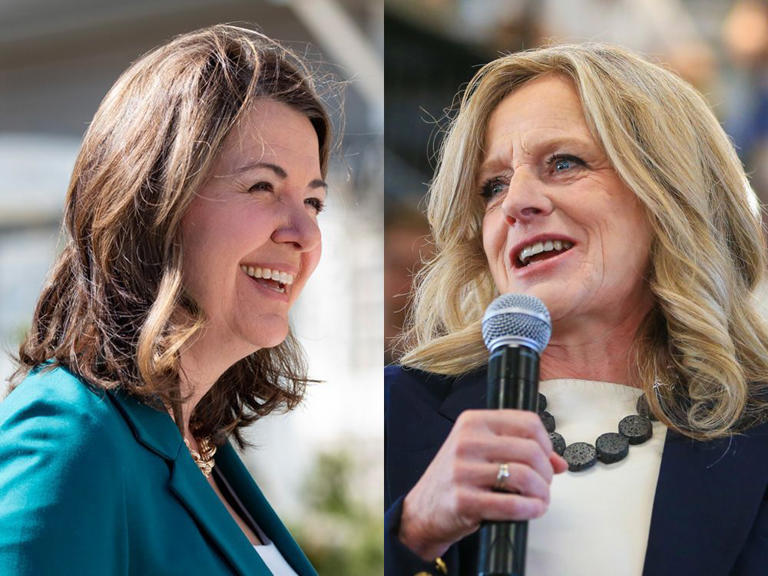
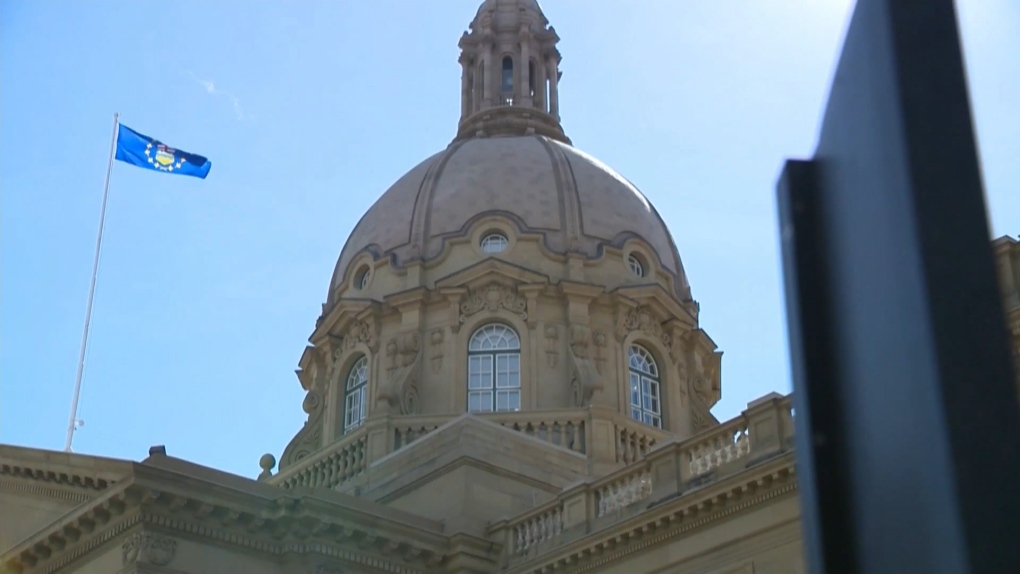
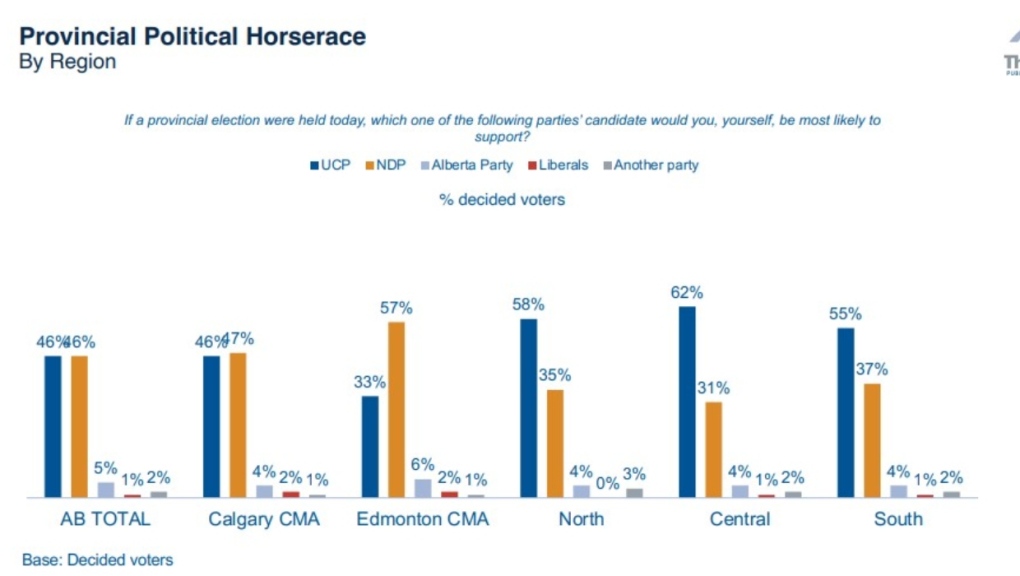
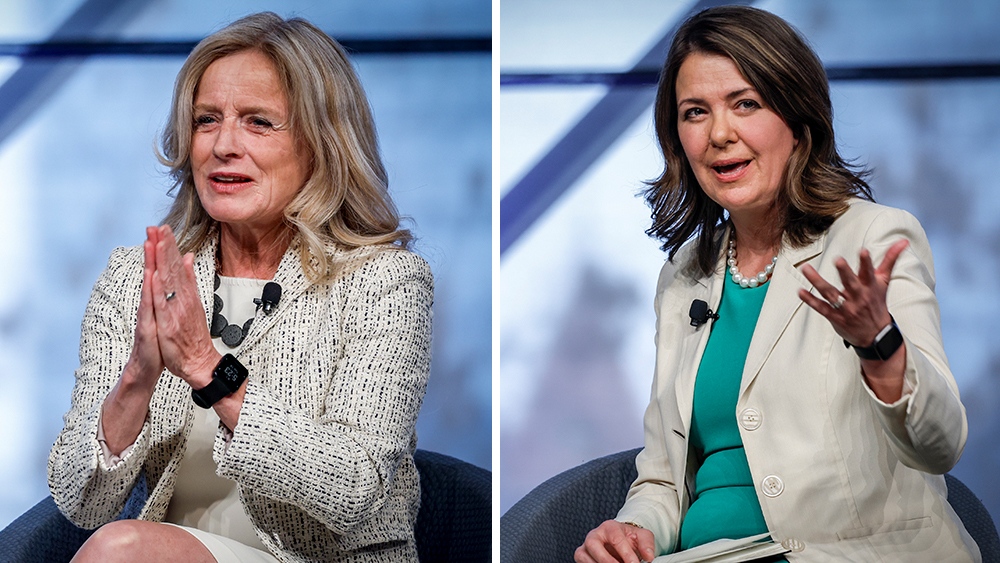
/https://www.thestar.com/content/dam/thestar/opinion/contributors/2023/05/16/would-premier-notley-be-friend-or-foe-to-justin-trudeau-and-jagmeet-singh/rachel_notley.jpg)
:format(jpeg)/cloudfront-us-east-1.images.arcpublishing.com/tgam/JOV5U2JFVJDXTPINXDHIA4NAOM.JPG)
:format(jpeg)/cloudfront-us-east-1.images.arcpublishing.com/tgam/KGIBKDD2V5C4BJLLMDHRDYIAME.JPG)
:format(jpeg)/cloudfront-us-east-1.images.arcpublishing.com/tgam/XLBIASEKSFEOVHHKQQ2ZIZUHLY.JPG)

